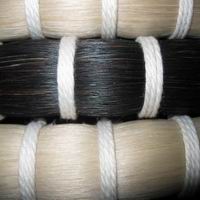Questions mount as Facebook advertisers lose to clickbots fa
Though while pay-per-click giant Google aggressively goes after bots and ke click scams, Facebooks inactivity might look like the social media behemoth is turning a blind eye to the problem.
The situation continued despite complaints to Facebook, and then when Facebook told Limited Run it would need to pay $2,000 monthly to be able to update the companys Page name, enough was enough.
Only those with access to richer data might be able to find out who created these bots, and why.
Interestingly, geographic demographics for wet bots such as Mechanical Turks (clicks for hire) show that most Turks are coming from India (the cheapest labor), and the Daily Beast priced them in Egypt, the Philippines and other available locations.
As a last ditch effort I even made it so that the page required you to have JavaScript enabled otherwise it would display a blank page. We served up literally tens of thousands of white pages.
Three weeks ago the BBC conducted its own Facebook ad click experiment, with suspect results and an interesting observation about geographic locations of the kes.
I realized this with my companys page. We have been advertising for several months and have grown from 0-3,000+ likes. Choosing any n at random leads to a profile of someone that likes thousands of other incongruous pages.
Is Facebook doing enough?
Company filings published this week -- 8.7 percent of its active user base.
Limited Run was emphatic to state that they were not saying Facebook was behind the bots. Some commenters suggested that Limited Run was the victim of a malicious competitor, who had perhaps hired bots to harm Limited Run.
Limited Run decided to put a logger on the site to track where the users were coming in from and what they were doing. From this, they determined 80 percent of the clicks from Facebook were bots.
I did a full blown ad campaign on Facebook for a popular rock band in Asia, with a irly large budget. I ended up suspending the campaign after just a few days when the expenses ran up into the hundreds of dollars per day, with very, very few verifiable visits (e.g. getting full visitor data).

Ive targeted the ad with various things including location, restricting the ad to the U.K. only, but 7 percent of the traffic that hits comes from other countries. Looking at the bounces, most do not request all elements on the requested page.
Violet Blue is a Forbes Web Celeb, CBSi/ZDNet blogger and columnist, a high-profile tech personality and one of Wireds Faces of Innovation. She is an expert in the field of and technology, a -positive mainstream media pundit (MacLife, CNN, The Oprah Winfrey Show) and has been interviewed, quoted and featured in outlets ranging from ABC News to the Wall Street Journal. A feature writer and columnist since 1998, Violet has authored and edited many award-winning, best selling books in six translations; a book sample can be found on Oprah.com. She was a notorious columnist for Hearsts San Francisco Chronicle, and Forbes calls her omnipresent on the web. She headlines at global conferences including ETech, LeWeb, SXSW: Interactive and two Google Tech Talks at Google, Inc. and received a standing ovation at Seattles Gnomedex. The London Times named Blue one of the 40 bloggers who really count. She is a member of the CNET Blog Network, and is not an employee of CNET. See full bio
...So we did what any good developers would do. We built a page logger. Any time a page was loaded, wed keep track of it. You know what we found? The 80 percent of clicks we were paying for were from bots. Thats correct.
The first red flag for Limited Run was JavaScript, or lack of it.
Nearly all of the likers came from India, Egypt, Indonesia and the Philippines. The statistics showed that the page was most popular in Cairo, with 75 percent of likes coming from 13- to 17-year-olds.
Weeding out clickbots is certainly a challenge and there is a lot of debate about identifying and eradicating them.

A serious question in the background remains: whose bots are they?
Are you a car lover?
But now it looks like Limited Runs claims were just the tip of the clickbot revenue inflation iceberg.
Meanwhile in the forums, a significant number of other Facebook ad buyers started to speak up with disturbingly similar and detailed stories.
Unfortunately, some advertisers have decided that whatever Facebook might be doing about the problem, its just not enough to keep their business.
Were discontinuing Facebook advertising this month and increasing our spend in AdWords. I suggest other businesses do the same.
So we tried contacting Facebook about this. Unfortunately, they wouldnt reply.
However, in light of the ct that this doesnt seem to be an isolated incident or genre-specific, this argument has no weight.
By maintaining our advertisers trust and providing a level playing field for all participants in the auction, we make it easier for advertisers to accurately plan their spending and calculate bids which make economic sense for their business. This predictability results in better return on investment, which can lead to increased spend.
Click fraud or invalid traffic?
Bots were loading pages and driving up our advertising costs.
A relationship with a startup sours when 80 percent of pay-per-click ad traffic turns out to be costly, invalid traffic. The issue may not be isolated. Is Facebook doing enough to solve the problem?
One user, who called himself Ahmed Ronaldo, listed Real Madrid as his employer, and featured the footballer Cristiano Ronaldo as his profile picture. Mr Ronaldo also likes more than 3,000 other pages.
Googles position on ke clicks is strong, and to its credit Google strongly outlines the harm clickbots do to advertisers and the PPC ecosystem -- and how allowing the behavior hurts long tail business strategies for everyone involved:
As Limited Runs statement made the Internet rounds, it was clear that it was absolutely standing by the claims that theyd been paying Facebook for the 8 out of 10 ke ad clicks.
Within 24 hours, VirtualBagel had acquired over 1,600 likes...
Facebook gets paid whenever someone clicks on an ad that advertises an ad clients page. Its called pay-per-click advertising.
Despite a sizable outcry from tech forums such as Reddits r/technology and Hacker News, Facebook issued a troublingly -- and Limited Run has deleted its Facebook presence entirely.
This week we put two of the best cars in the Porsche stable head to head to see which really is the best.
Bots/hijacked accounts/ke accounts. How do I know? Many of them have NO friends. Then I noticed something really scary...repeats. Actual pictures showing up more than once for new likes. Very, very few of the accounts were from the USA...
Limited Runs staff were accustomed to 1 to 2 percent of users coming in with JavaScript off. The ct that 80 percent users were clicking in with JavaScript off was a discrepancy that raised a big red flag.
Same problem here. Only 40 percent of the clicks Im charged for actually result in any request to my site (using the Apache logs and Google Analytics to check). Of those, I get a 92 percent bounce rate (same ad elsewhere results in a 20 percent bounce rate).
After all, its certainly true that Facebook has an abundance of detailed information on users clicking on ads, including (but in no way limited to) their user behavior across multiple websites, friends, posts, location, non ad-click activity to ad-click activity ratio) which could be used to split a percentage of humans from clickbots or Mechanical Turks.
While not exactly Limited Runs methodology, another former Facebook advertiser offered yet another story:
Also another point, the lse/bot visits we got lasted only seconds (e.g. bot loads page, exits without follow through), whereas real verifiable visits lasted anything from 10 seconds to many minutes, with follow up clicks and normal visitor behavior.
Facebook has been reached for comment and updates. Responses will be published in this article.
I can confirm this. I used Facebook to advertise my page and went from ~2,000 ns to over 6,000 within several months...Guess what?
I ended the ad program recently and the bots stopped.
On Monday, a startup revealed that it was ending its presence on Facebook, alleging it had paid the social network for a shocking amount of automated ad clicks. In its examinations, Limited Run charged that , or clickbots.

Some of those liking the page did not appear to be who they said they were.












